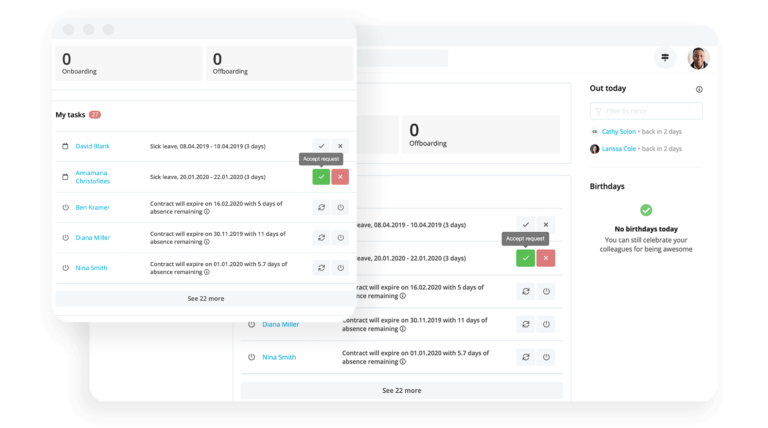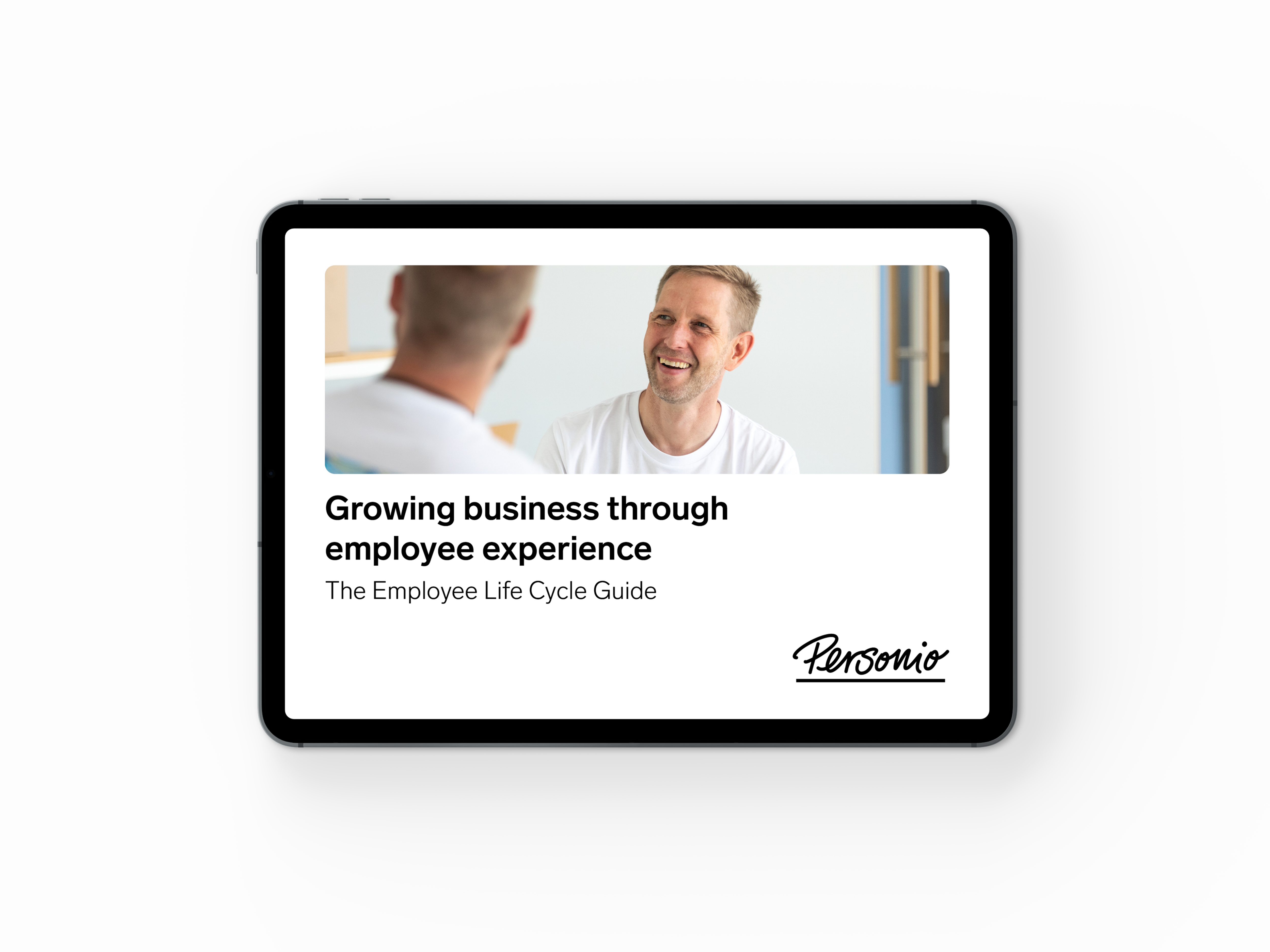
Employee lifecycle guide
Optimised processes for each stage of the employee journey
Download our guide7 Modern HR Processes to Boost Business Performance
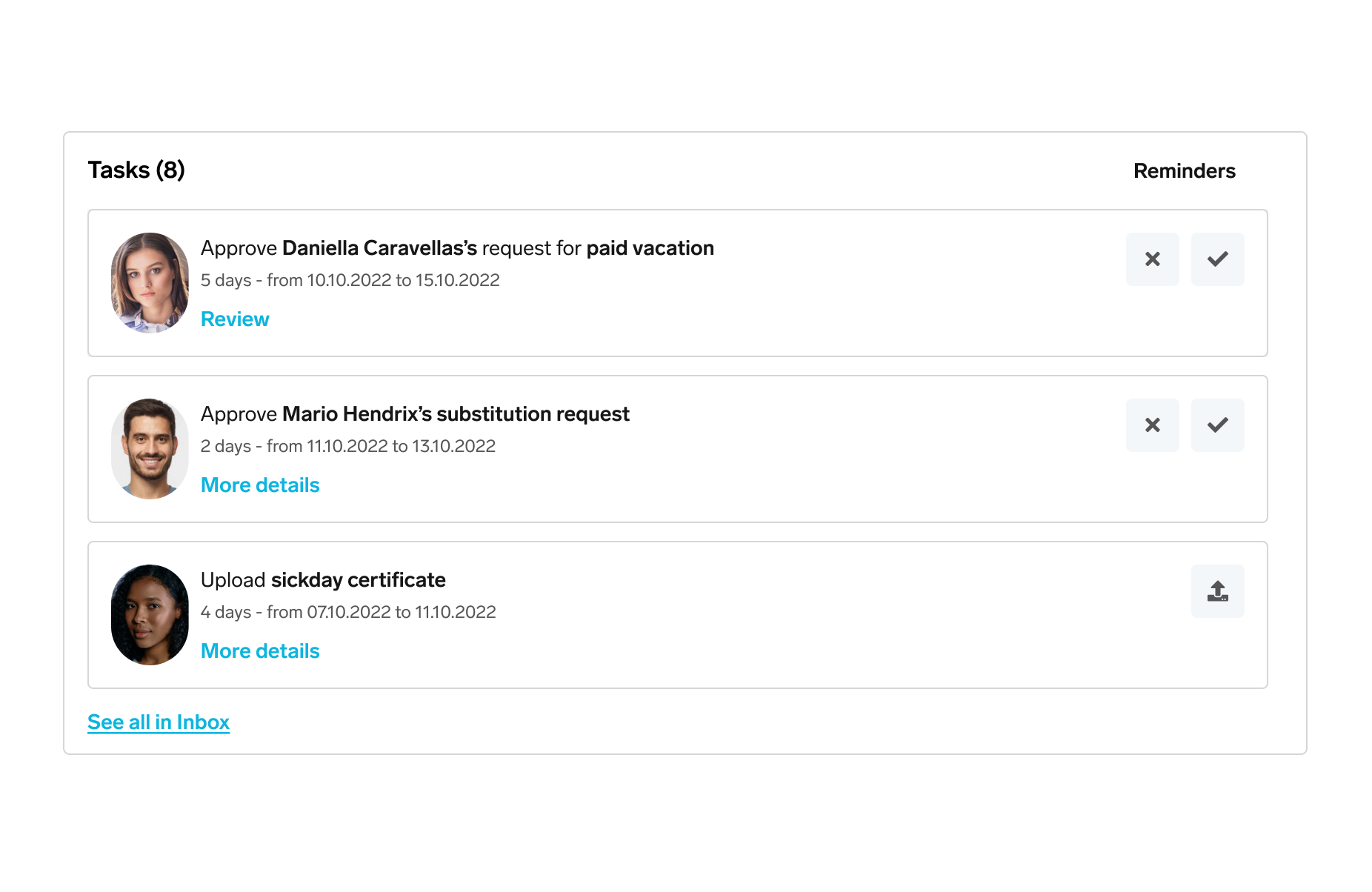
Who told you that HR processes were boring? The truth is that operational excellence in HR can pave the way for big-time business success. Proper processes play a big role.
In this article, we detail some of the most important HR processes, why they matter and newer, more modern ways to think about how to manage them.
Navigate each stage of the employee lifecycle with ease. Download our guide today.What are HR processes?
HR processes involve both the strategic direction and day-to-day work designed to support the employee lifecycle. This is done with the end goal of boosting business performance through higher levels of employee engagement and satisfaction.
When we talk about HR processes, the conversation normally starts by discussing what are often called "core HR" processes. These often include:
Onboarding
Payroll
Benefits administration
Internal employee relations
Training
Compliance matters
As you build out and scale your organisation and your HR team structure, each of these processes build new layers and begin to rely on one another. Making things more connected, but inevitably more complex.
Think of it like this: The processes you use to manage recruitment may influence how quick it is to turn a candidate into an employee. This can affect onboarding, which can influence how connected an employee feels to their new organisation and fellow employees.
Ultimately, all of your HR processes are interconnected. Therefore, you need to think of them holistically and how you can bring them together in one place.
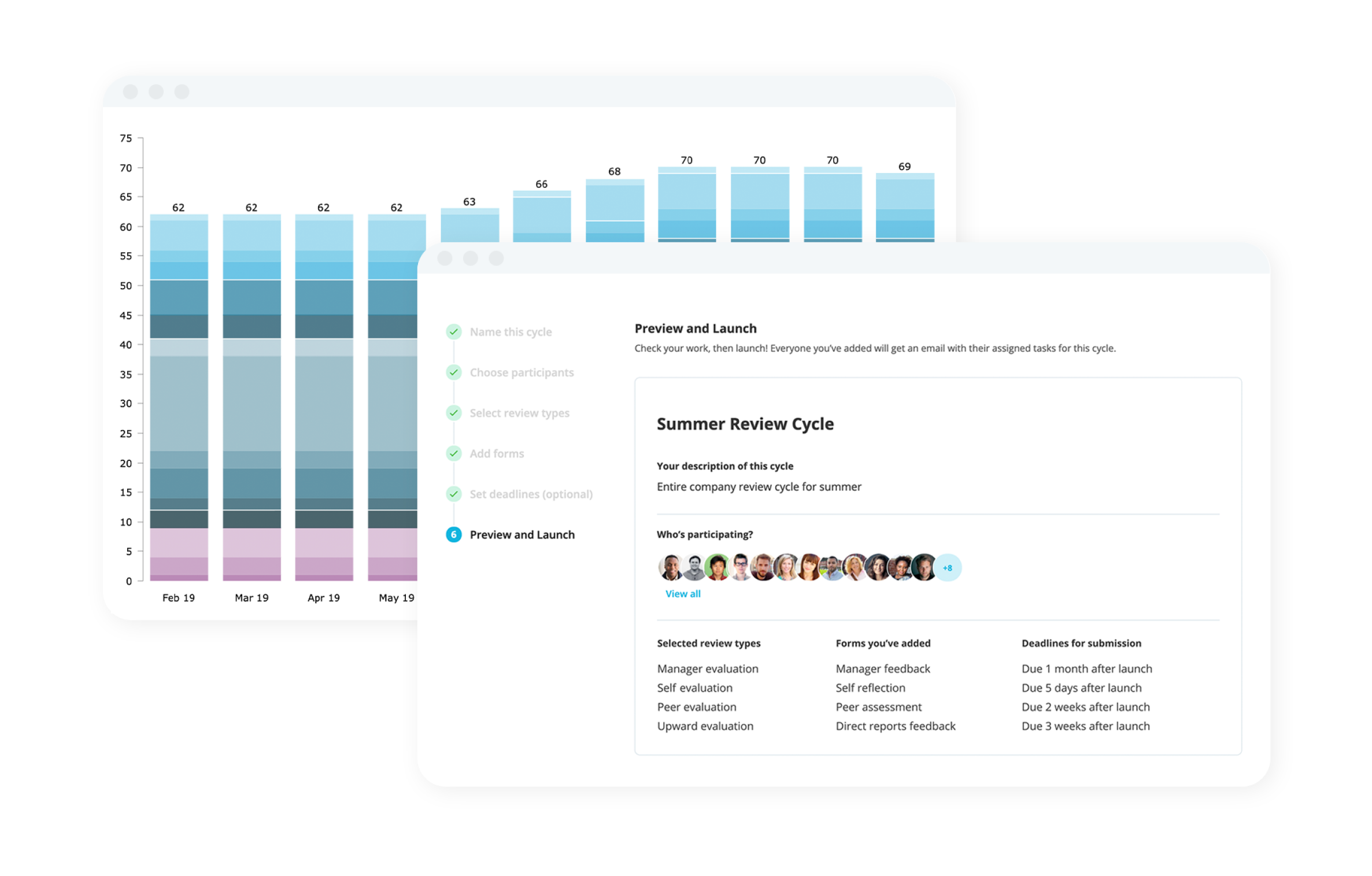
What are end-to-end HR processes?
End-to-end HR processes refer to the different steps required to introduce an employee, manage their performance, help them advance or help them exit a company.
When you have a process built for each stage, you are effectively guiding an employee on their professional journey (or through, what some might call, a human resource flow).
This works both ways. When done well, it means keeping a high performer around for longer (by managing their performance in a clear and productive way). On the other hand, it also means being able to identify a potentially-toxic employee and rooting them out.
Or, it could simply mean having happier, more satisfied employees from their first day on the job. The idea is that end-to-end HR processes can serve your organisation in a vast collection of ways.
What are the most common examples of HR processes?
Some of the most common processes for HR teams include:
Recruiting
Onboarding and offboarding
Workforce and succession planning
Employee engagement and relations
Compensation, benefits and reward
Absence management
Performance management
What you’re likely to notice is not only how many there are, but how important they are when it comes to each stage of the employee lifecycle.
Each of these processes touch employees on their first, last and most important days at work. That’s why having them in place can often play a key role in organisational success.
Manage all your HR processes from one place

Personio's all-in-one HR software is designed to help you recruit, onboard, manage, develop, pay and retain your employees. Speak with an expert today to see how our solution can help meet your organisation's unique needs.
Find out how it works7 more modern HR processes to introduce today
Using the above categories as examples, let's talk about how you can digitse and modernise some of the most common HR processes out there...
1. Recruiting
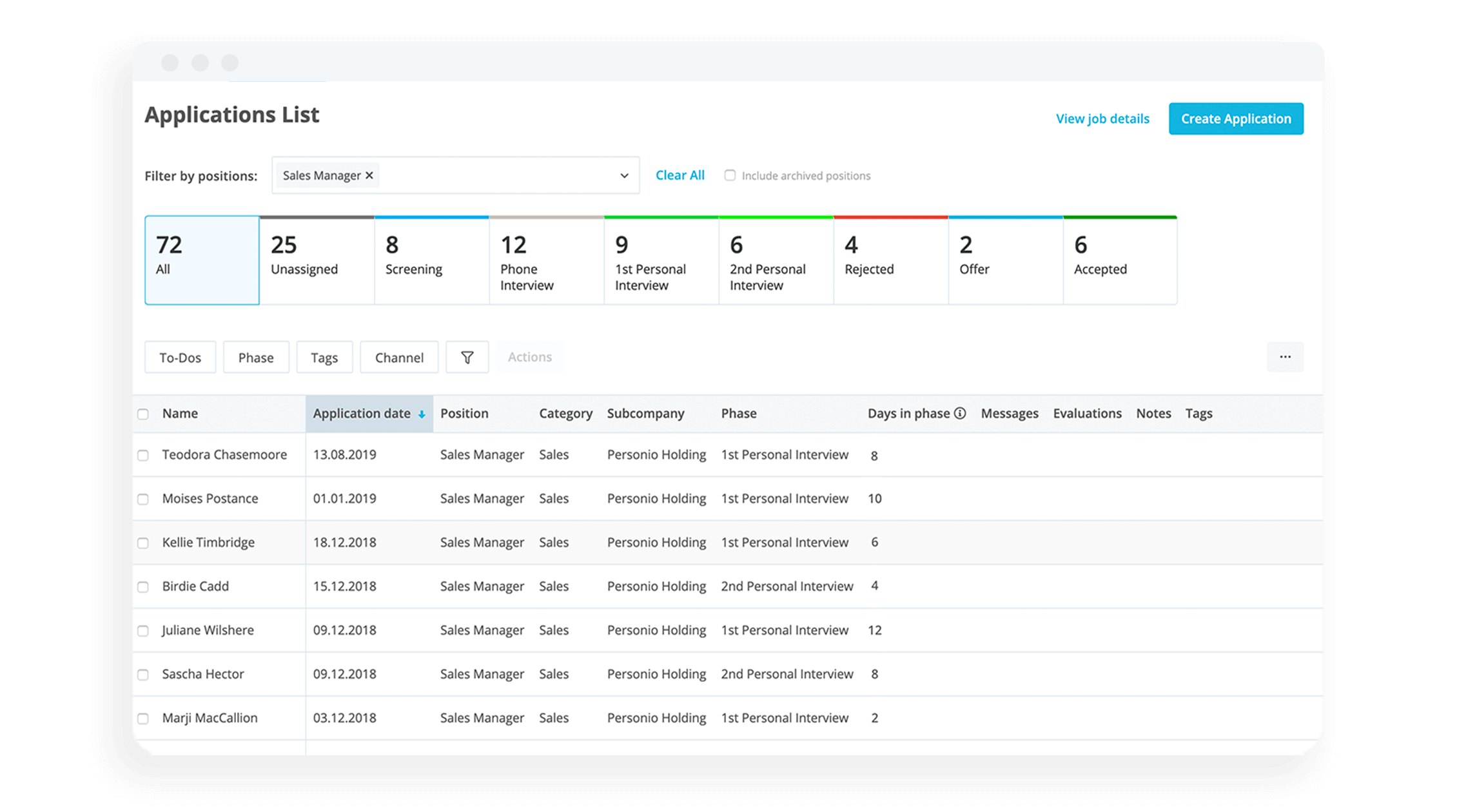
HR teams should always be on the hunt to leverage modern technologies to improve their recruitment efforts. This can be done by streamlining the processes using online job boards and applicant tracking systems that guarantee a great candidate experience.
Today's talent is as discerning as ever. They'll begin evaluating your company from their first interview. Therefore, the way you interact with top talent, starting from their very first interview and how you arrange it, matters a lot.
Your teams should be looking for ways to bring automation into the process. Especially as it concerns scheduling, where top performers don't want to spend time going back and forth simply finding a time that works for everyone.
2. Onboarding and offboarding
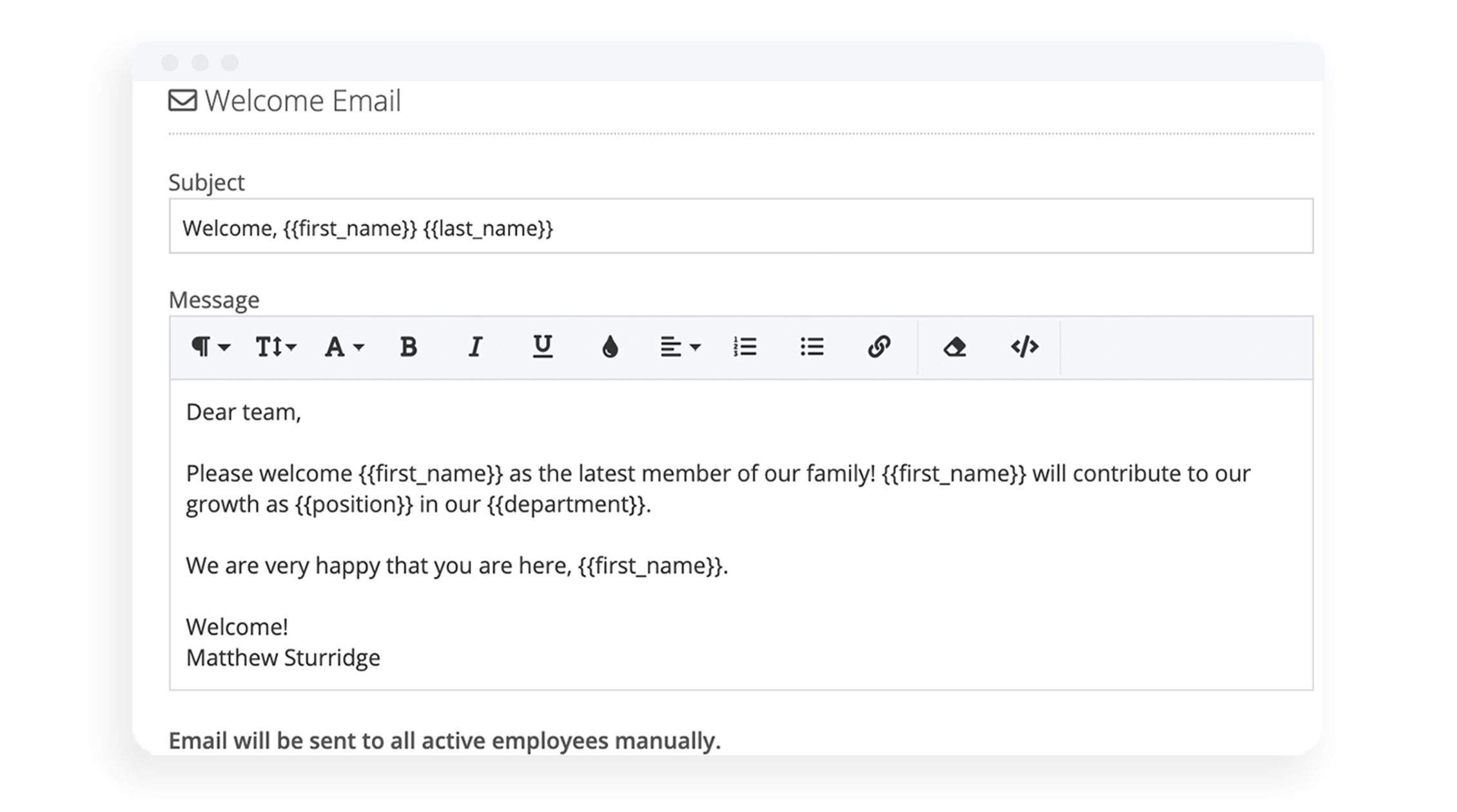
Employees should be made to feel welcome from their first day on the job. One of the easiest ways to modernise your company's HR processes is to hone in on onboarding.
That's for two reasons: It helps boost employee engagement and satisfaction, while also giving a boost to on-the-job producitivity. When an employee feels welcome, they are more eager to learn, to get to work and to succeed in their role.
For that reason, welcome messages can serve as a big boost. It's a simple step in a long journey, but it can set the tone for the entire process. Your team should think of ways to introduce new employees in a meaningful way.
3. Workforce and succession planning
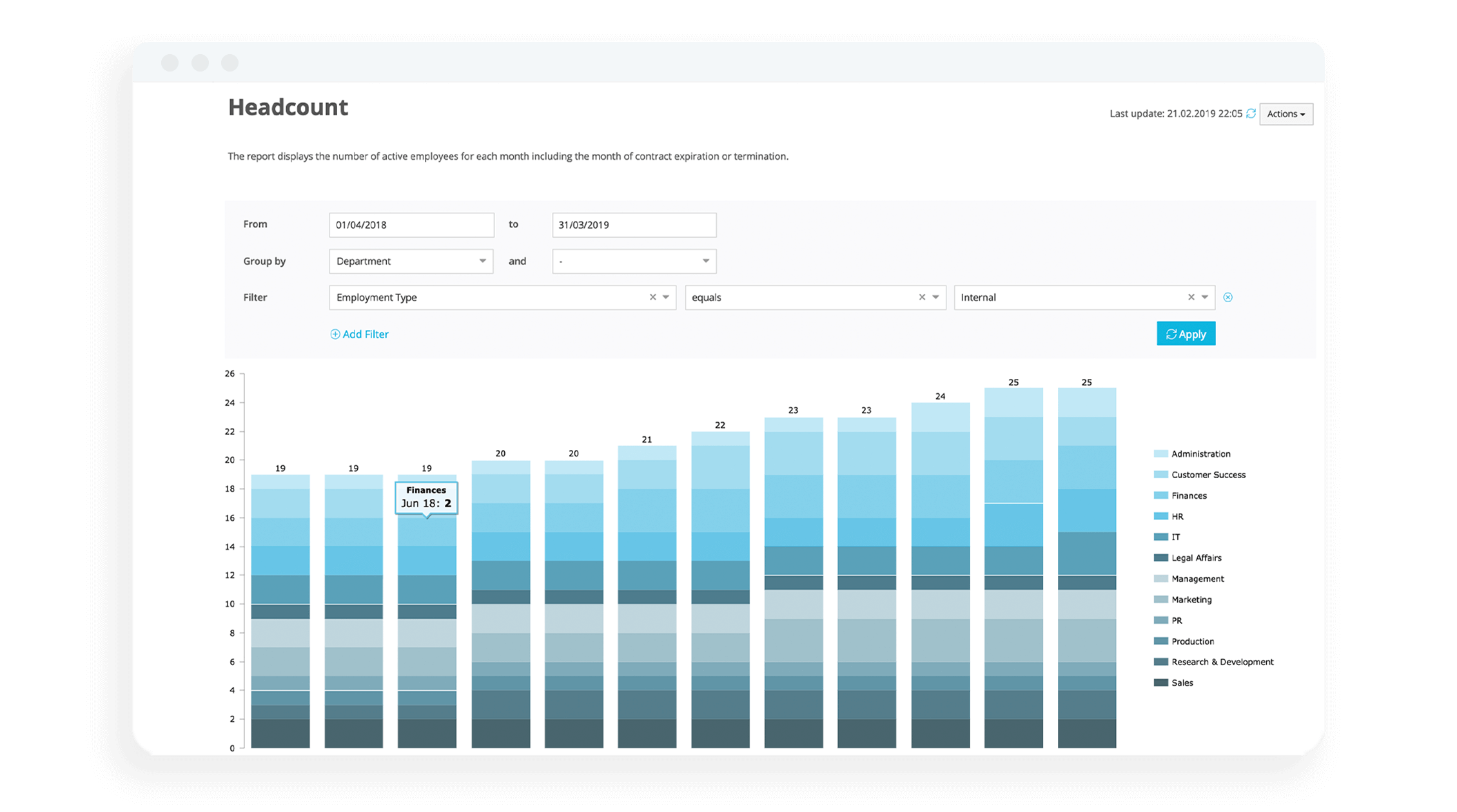
Workforce planning is only possible when you have access to the right data. This can help teams identify potential talent shortages or chart their growth accordingly.
At the same time, this can give teams back time to figure out the skills gaps that exist within their organisations. This can be done by analysing organisational charts, diving into the data or surveying their employees.
4. Employee engagement and relations
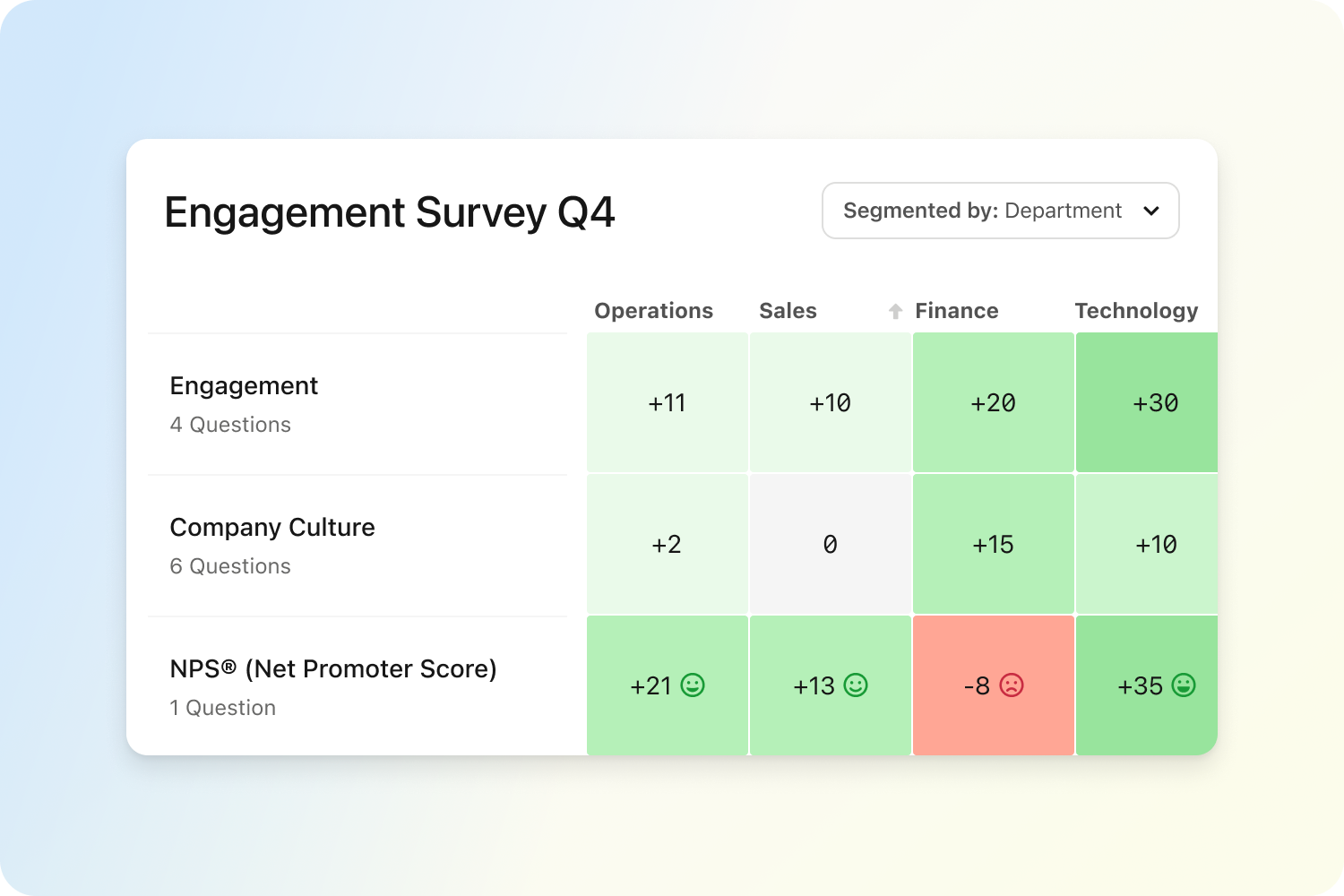
If you haven't already, your team needs to begin running employee engagement and pulse surveys. These are helpful for a multitude of reasons, but the main reason is to gain a real handle over your recruitment and retention efforts.
What do employees enjoy about your organisation? Where is there room for improvement?Your employees are your greatest sounding board, and your organisation should know how to leverage their insights (and to do it at scale).
5. Compensation, benefits, and reward
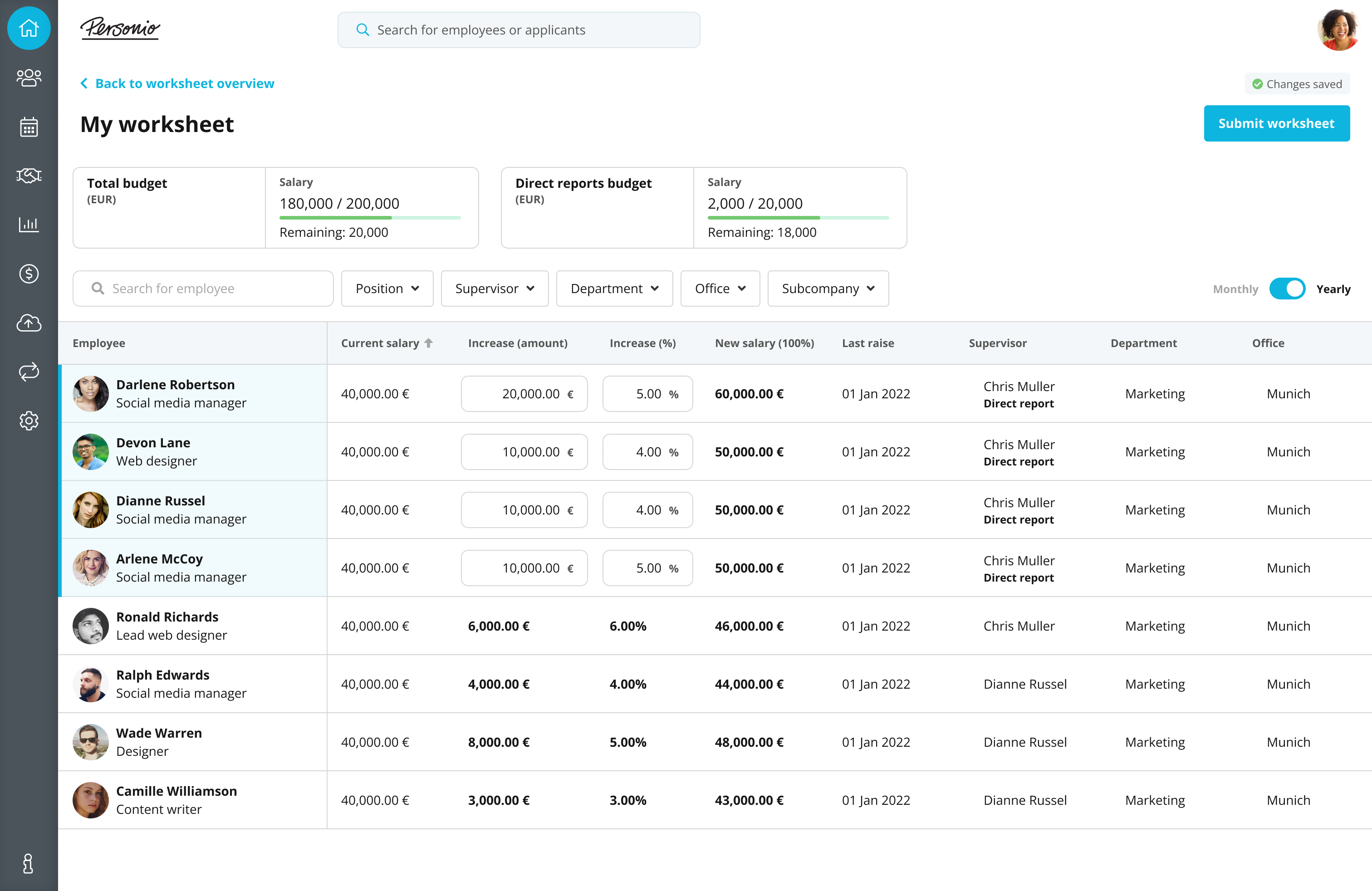
Compensation and reward is becoming a hot topic for many organisations. To manage it in a modern way, you need a system that can easily and securely manage data regarding reward from a single source of truth.
This can mean that when it's time to talk about raises, bonuses, salary benchmarking or transparency, your organisation is prepared with clean and secure data that is completely under your control.
6. Absence management
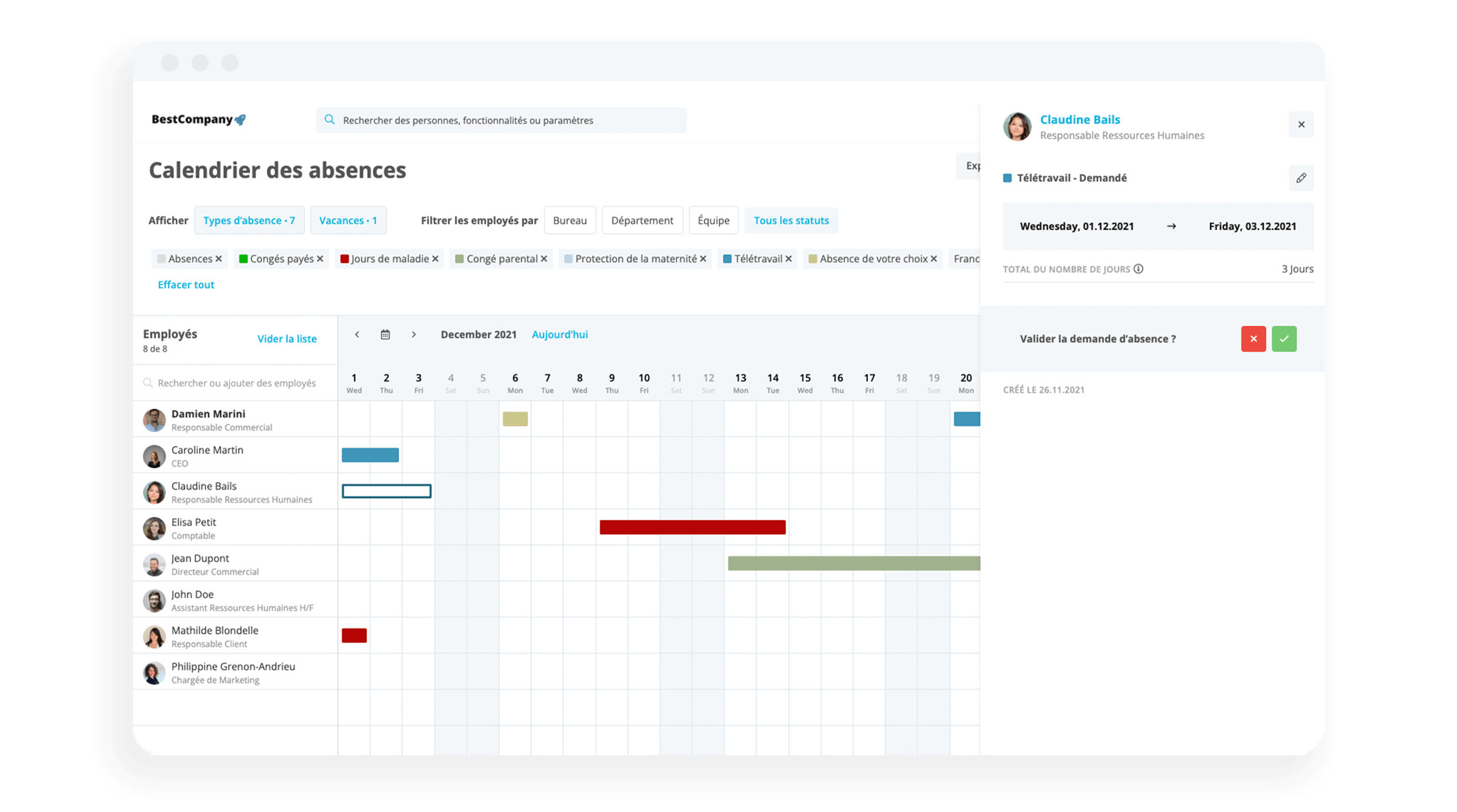
Across 10,000 companies, Personio supports over one million employees manage their absences. We know what it takes to build more streamlined absence processes.
From our experience, there's three key factors:
Self-service: Giving employees the chance to request their own leave.
Visibility: Showing when people are in, and when they're out, at a glance.
Automation: Building workflows and running reports that run easily and securely.
The result is an end-to-end process that is easier for employees, managers and HR teams. This also gives HR teams the chance to focus on other types of leave, like special leave or bereavement leave, and having adequate HR policies in place for their workforce.
7. Performance management
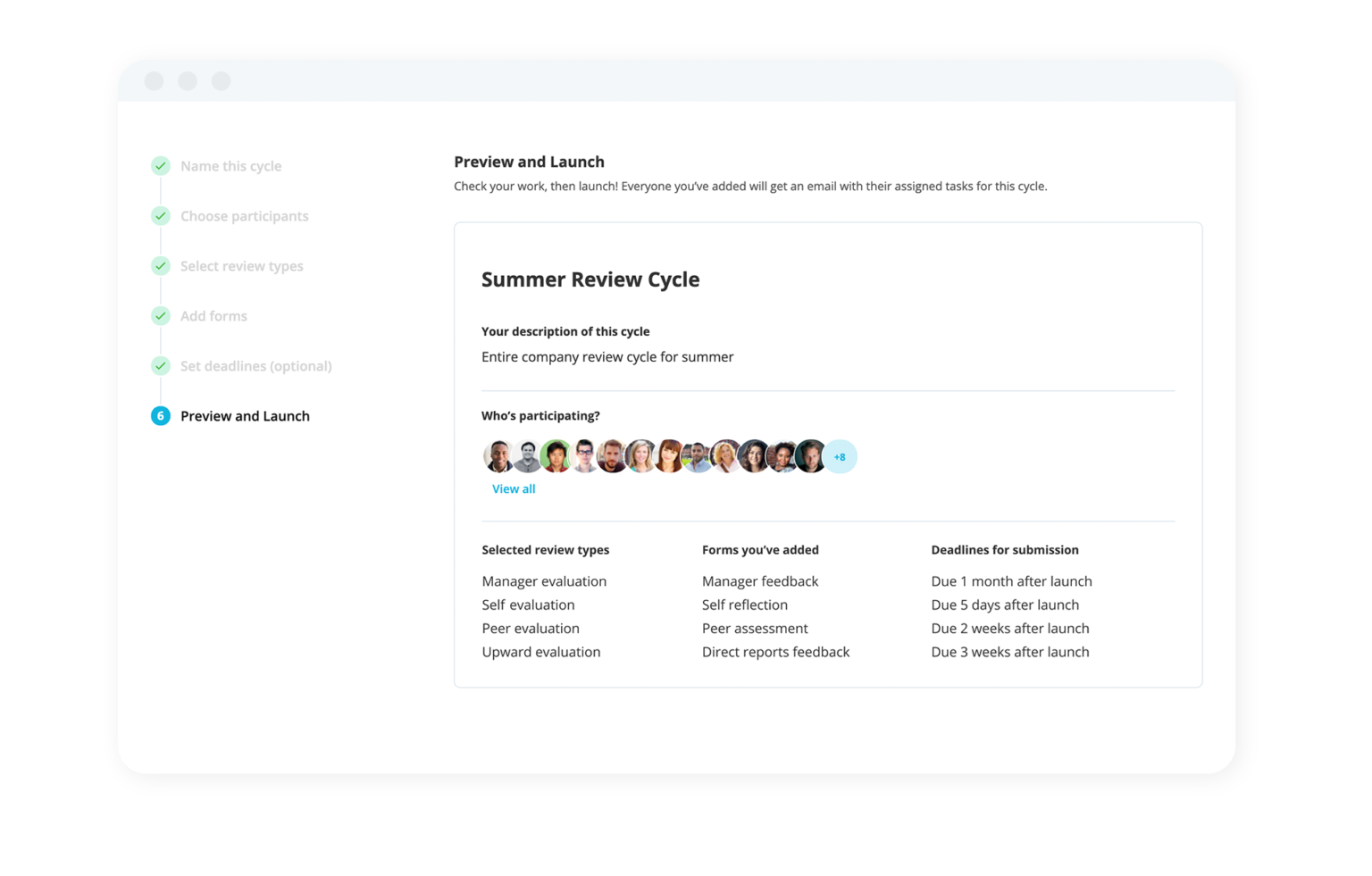
The trickiest part about modern performance management is making sure that it runs like clockwork. After all, a missed performance review is essentially an invitation to have a top performer walk out of your organisation's doors.
Modern performance management means renewed focus on ensuring that development conversations happen, that feedback is collected and that goals are met and things like bonuses are calculated accordingly.
Why are HR processes important?
For leaders in HR, processes are everything. They are the way you handle operational excellence within your organisation, which then extends to almost every aspect of your business.
When you have the right ones in place, you can help drive performance. It then elevates the status of HR within the organisation, which helps position HR as a strategic voice at the table of executive leadership (where it, in truth, rightfully belongs).
Therefore, they matter because they help lay the groundwork for employees to succeed in their roles, and for the business to thrive as a result.
Can HR processes improve company culture?
When a company has proper processes in place, it can have an untold positive effect on company culture.
That’s because company culture is almost always influenced by HR, and the ways in which people feel heard, planned around, and catered toward in terms of their relationship with the organisation.
After all, a business’s most important asset is its people. When you have effective processes in place, it can help employees better understand your organisation’s vision, purpose, and the ways in which you promote performance, help people feel heard, and the initiatives you take to manage employees and their wellbeing.
All told, culture needs to start from the top, but HR processes can help ensure that it is articulated and evidenced in every corner of the organisation. They can both help set and emphasise elements of culture that matter most.
Can HR processes improve employee retention?
Of course! When you have streamlined HR processes in place, a myriad of things happen. You can improve the time it takes for employees to complete work surrounding their performance, you can help them feel heard (raising job satisfaction), and you can increase morale.
For each of these reasons, you can have a meaningful effect on your retention or attrition rate, simply by having the processes that help employees succeed in their roles. It also positions your organisation for the future, allows you to plan more strategic initiatives, and boosts retention in ways you may never have thought of before.
Can HR processes help with productivity?
When you automate your processes and digitise them, you can save time for everyone in your organisation. This not only applies to those in HR, but also those who have different roles — everyday employees, leaders, and executives. Processes that make sense help make everyone’s work easier.
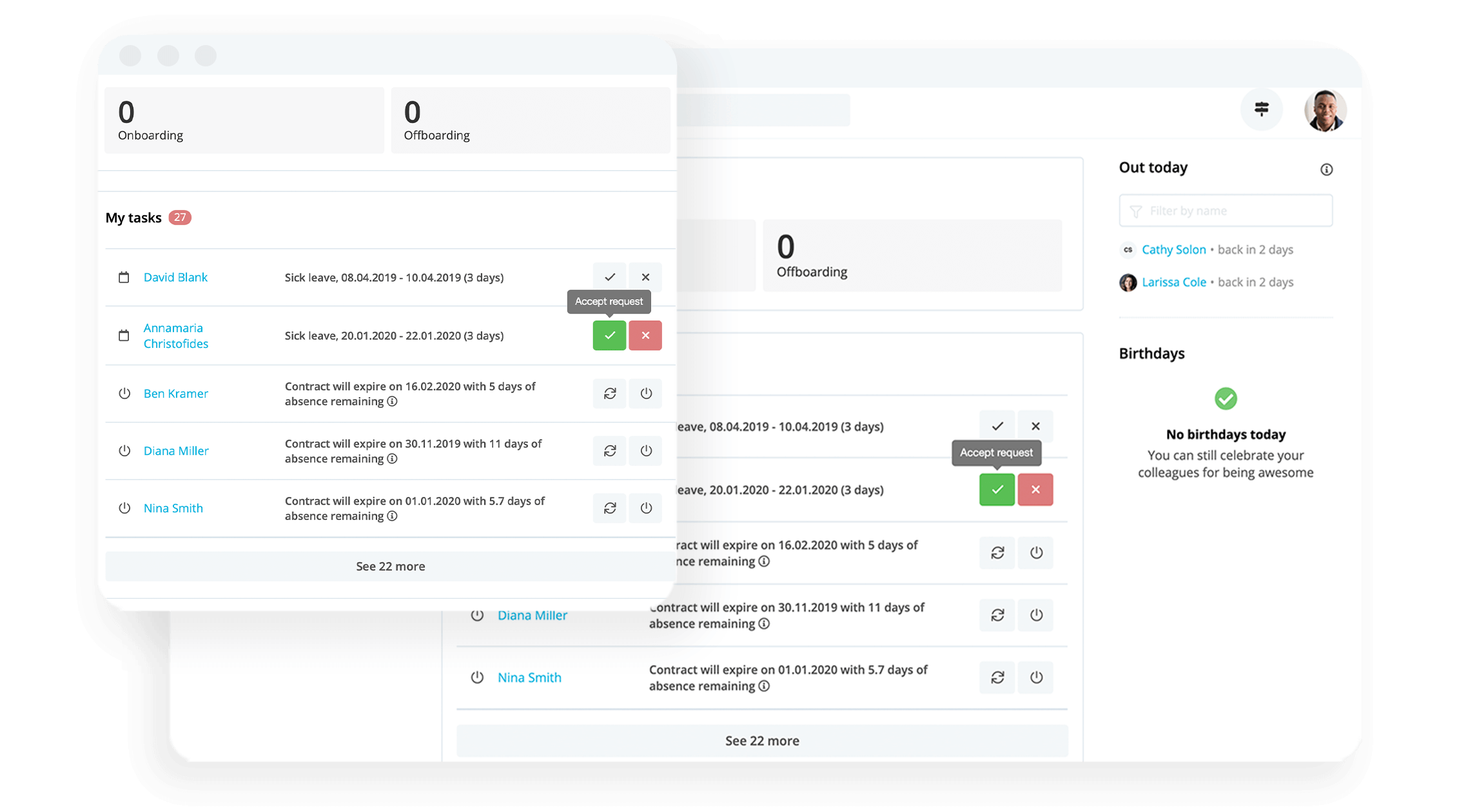
How do you effectively manage HR processes?
For many businesses, they may handle their processes across an assortment of different tools or spreadsheets that help make them a reality. While it helps make them possible, it can often hold back productivity when it comes to creating a seamless experience.
That’s because manual processes often take more time, result in less-reliable data, and are, on the whole, far less secure. While they offer companies a place to start, they are not able to scale or grow with company’s as their needs change or when certain areas of emphasis gain importance.
HR processes can also be managed by an all-in-one solution, like Personio. This way, all of your core HR tasks are handled in one software, offering a single source of truth and an easy-to-remember place for employees, managers, and executives to reference when it matters to them.
Which HR processes does a nonprofit need to have?
Nonprofits require much of the same day-to-day HR processes that every business needs, such as absence management, onboarding and HR analytics.
Due to the special nature of the work of a nonprofit however, getting the right people on board with a great recruiting process is extremely important. And it’s essential that a nonprofit can find the right people while maximising their budgets, so features such as analytics of recruitment channel performance is essential too.
Similarly, as nonprofits also need to have clear documentation and policies in place, particularly when many work with vulnerable communities, providing employees with easy access to this is also crucial. For this same reason, training management and the ability to track accreditation across your organisation is also essential.
As many nonprofits tend to be dependent on volunteers, time tracking is an important HR process to put in place, especially for planning and forecasting purposes. Meanwhile, retaining committed employees is also crucial for nonprofits, so performance management and HR analytics are also key HR processes.
Finally, as maximising employees’ time is absolutely critical in a nonprofit, regular HR processes such as onboarding, absence management, performance review cycles, updating of digital employee files and payroll data and creating HR reports should be quick and easy in order for your employees to dedicate their time to your nonprofits’ mission.
Find out how Personio supports nonprofits here.
What Happens If You Get Your HR Processes Wrong?
When you don’t have processes in place, it can be a slippery slope in terms of employee performance, engagement, and overall morale. Especially when it comes to trying to incorporate a wide range of tools to manage them, you can delay people in their work and sap their interest.
On a larger scale, improper methods can also cause your employees to become unsatisfied. They can feel as though they are not developing in their roles, or they are not being heard, thus increasing your company’s attrition rate when they leave (and hurting your business’ reputation overall).
Therefore, you’re not only losing time, but you are losing talent and valuable equity. That’s why you need to invest in processes that make sense for your employees, and that engage them in a meaningful way (without taking up all of their time with scattered tools or manual processes).
Start improving your HR processes today
WATCH: Get to know Personio in three minutes

We need your consent to load this service!
This content is not permitted to load due to trackers that are not disclosed to the visitor.
Personio is an all-in-one HR software designed for every stage of the employee life cycle.
Using Personio, you can manage all your most important HR processes from one place. Recruit, manage, develop and pay your employees from one centralised HRIS.
For HR professionals, you can unlock new levels of productivity and influence. Fulfil the HRBP role that your business needs, by getting back time for what matters: your people.
For line managers, Personio seamlessly builds automated performance cycles, tracks vacation days and keeps employee information up-to-date (and in a compliant fashion).
For employees, no more fussing with cumbersome tools and processes. Employees can request days off, change their information and keep track of goals and more. All from one place.
Speak with an expert today about your HR needs and how Personio can meet them. Or, give Personio a spin for yourself by starting your very own free trial right now. It’s all yours for 14 days.
